Everyone talks about love, but few can truly define it. We say “I love you” to partners, pets, coffee, and sunsets—but the same phrase covers everything from craving to cosmic devotion. No wonder the concept of love confuses both poets and scientists alike.
A psychic, however, sees love differently. Love is not simply a feeling; it is a vibration, a living frequency of consciousness that moves through people like music through air. It’s not bound by logic or language. It’s the invisible electricity that makes you think of someone right before they text you, the reason you can feel a partner’s mood across continents, or the warmth you sense from a stranger who reminds you of home.
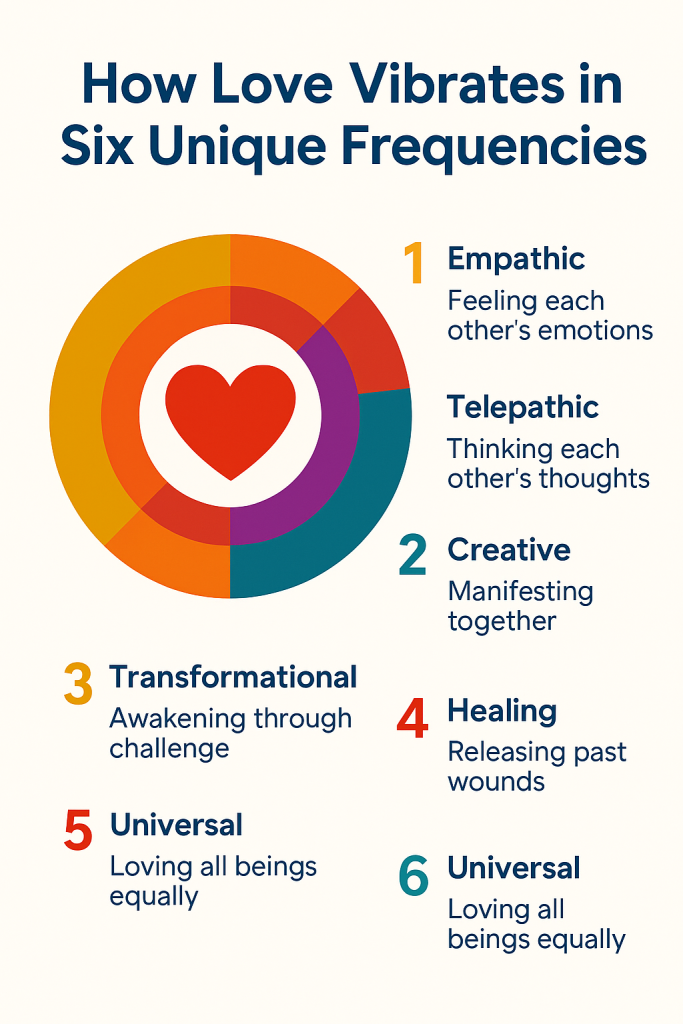
Love Isn’t an Emotion—It’s an Energy Field
Science often tries to capture love in chemical formulas—dopamine, serotonin, oxytocin—but that only explains how the body reacts to it, not what love is. Psychics describe love as the highest vibrational energy in existence, the same current that fuels intuition and spiritual connection. It’s why the heart chakra glows green and pink in clairvoyant readings—it vibrates at the frequency of unconditional compassion.
When two people meet and “click instantly,” it’s not random chemistry; it’s resonance. Their energy fields synchronize, creating a sense of familiarity beyond words. The late psychic Sylvia Browne once said, “Love is memory in motion—your soul recognizing another soul from before.” That recognition explains why we feel instant comfort with some people and unexplainable tension with others.
Even scientists at the Greater Good Science Center at UC Berkeley admit that love resists a single definition. They describe it as an evolving state—part biology, part behavior, part mystery. Psychics agree but add an energetic twist: love is the vibration that mirrors our current level of consciousness. We attract what our energy understands.
Why Defining Love Feels Impossible
Every culture, religion, and generation defines love differently. Ancient Greeks had eight words for it—eros (passion), philia (friendship), storge (family affection), agape (divine love), and more. Modern English? Just one. This linguistic poverty explains why so many relationships collapse under confusion: we’re trying to express multi-dimensional energy through a one-dimensional word.
Psychically, love shifts with frequency. A person vibrating in fear experiences love as dependency—“Don’t leave me.” Someone vibrating in confidence experiences love as expansion—“I want to grow with you.” Someone vibrating in unconditional energy experiences love as presence—“I love you because it’s my nature to love.” The word stays the same, but the vibration changes everything.
One of my favorite client stories illustrates this perfectly. A woman named Lina came to a psychic reading convinced her partner no longer loved her. She felt ignored and unwanted. But during the session, the psychic sensed that both partners still had strong heart-energy—it simply vibrated at different speeds. The man was focused on stability (root chakra energy), while Lina was yearning for romance (heart chakra energy). Once she learned to meet him where he vibrated—through grounding and gratitude—the relationship warmed again. The love hadn’t vanished; it was simply speaking another energetic language.
The Many Faces of Love
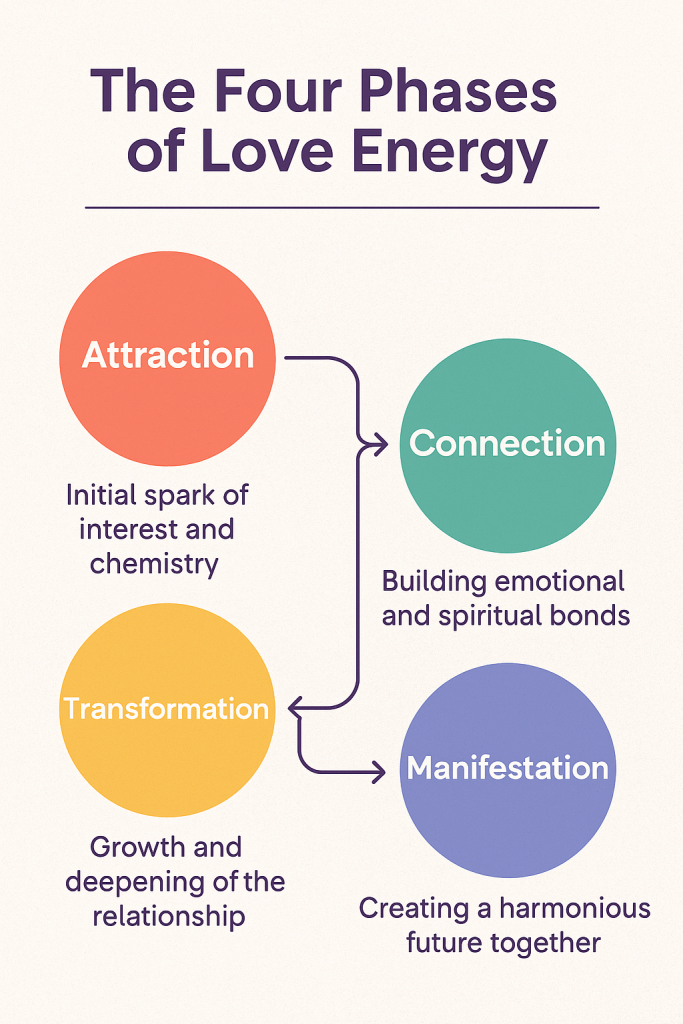
Love appears in countless disguises: friendship, passion, parenthood, mentorship, compassion for humanity. Each is an expression of the same universal current filtered through different frequencies.
Romantic love is fiery and transformative—it tests ego, boundaries, and trust. Familial love anchors us—it reminds us where we come from. Platonic love nourishes our emotional safety. Spiritual love transcends all—an endless outpouring of empathy for every being.
A psychic might compare these forms to colors of light. White light is whole love; when it passes through the prism of human experience, it breaks into shades—romantic red, nurturing green, loyal blue, transcendent violet. No color is lesser; all are reflections of the same divine source.
Across the world, different cultures focus on different shades. In Japan, love often means quiet loyalty and shared purpose. In Italy, it’s opera-level passion. In India, it’s destiny guided by karma. Psychics observe that these cultural imprints affect the aura of love readings: a Japanese couple’s energy may glow steady and grounded, while an Italian pair’s energy may dance chaotically but joyfully. Each form is beautiful when aligned with truth.
Love as Recognition, Not Possession
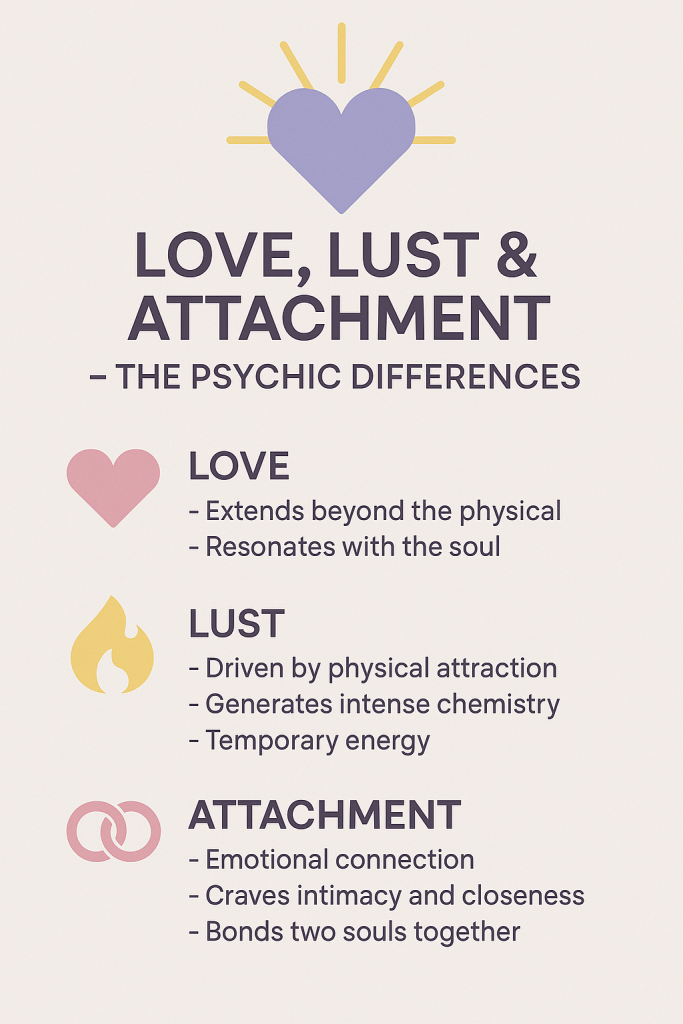
We tend to talk about “falling” in love as if it were a trap. Psychics prefer to say we remember love. It’s recognition—the soul seeing itself reflected in another. True love doesn’t bind; it mirrors. It doesn’t say “You are mine.” It whispers, “I see you.”
When clients ask, “How will I know when it’s real love?” the answer is simple but profound: It will feel peaceful. Real love doesn’t require you to abandon yourself. It harmonizes you.
That’s why psychics often distinguish between love, lust, and attachment in readings:
Love feels light and expansive, like a deep exhale after holding your breath.
Lust feels electric, quick, and thrilling—but fades like lightning.
Attachment feels heavy and magnetic, rooted in fear of loss.
Love inspires; attachment exhausts. The difference lies in vibration, not vocabulary.
The Humor Hidden in the Heart
Love, of course, has a sense of humor. The universe loves irony. Have you noticed how the moment you swear you’re “done with dating,” someone fascinating appears? It’s as if the universe waits until you drop your emotional resistance before introducing the next chapter.
A psychic once laughed with a client who complained, “The universe keeps sending me emotionally unavailable men!” The psychic replied, “The universe is showing you where you keep hiding your emotions.” Moments of humor like that carry spiritual medicine—because laughter loosens the grip of old energy.
Love isn’t a test you pass; it’s a mirror you polish. The clearer your reflection, the more love can flow.
Where Science Meets the Soul
Science measures love in hormones and neural activity, but that’s like trying to define a symphony by measuring air vibrations. You can analyze sound waves, but that won’t tell you why music makes you cry.
Psychic perception bridges this gap. During love readings, many psychics see geometric patterns or colors connecting two people—threads of energy that pulse when emotions are mutual. Those connections are often visible months before physical union occurs. It’s the same unseen force behind those uncanny coincidences when two people meet “by accident” in another city or think of each other simultaneously after years apart.
The Greater Good Science Center points out that our culture’s myths about “perfect love” often lead to disappointment. Psychics see through that illusion: there’s no perfect love, only perfect timing for growth. The right love shows up when your vibration matches the lesson you’re ready for.
Love and Soul Contracts: Why We Meet Who We Meet
Have you ever locked eyes with someone and felt an inexplicable recognition, like you’ve known them across centuries? Psychics often describe this as a soul contract—a sacred agreement made before incarnation to meet again for mutual evolution. These contracts are not about romance alone; they can include parents, friends, teachers, even rivals. Each one carries a purpose, and love is often the magnetic force that brings the lesson into motion.
The Cosmic Fine Print of Connection
Before birth, souls are said to meet on the astral plane and agree to help one another grow through specific experiences. Some will teach patience, others forgiveness. Some relationships are brief—more like lightning than long-term weather—but they still leave imprints of transformation.
A psychic once shared a story about a woman named Rhea who couldn’t understand why she repeatedly fell for unavailable men. In a regression reading, it was revealed that she’d made an old soul agreement with one of them to learn independence. Once she finally released the pattern and claimed her power, the energy loop dissolved—and so did her attraction to emotionally distant partners.
Soul contracts explain why certain people enter our lives just when we’re ready for a new lesson. As Psychology Today notes, relationships provide meaning, purpose, and a sense of value to life. Psychics extend that perspective, saying these relationships also serve as spiritual classrooms where the soul studies compassion, boundaries, and unconditional love.
The Purpose of Heartbreak
Heartbreak is rarely random. It’s a teacher wearing disguise. When love ends abruptly or painfully, it signals that the soul has learned what it came to learn. Psychics often say that heartbreak doesn’t mean failure—it means graduation.
Take the example of Daniel and Maya, twin flames who reunited after eight years apart. Their connection was explosive and beautiful, but after a few months it fell apart. Through psychic guidance, both realized they’d fulfilled the purpose of their soul contract—to awaken each other spiritually and spark self-worth. Once that was achieved, the contract naturally expired.
Heartbreak doesn’t close your capacity for love—it expands it. Each ending refines your vibration, preparing you to attract a partner who aligns with your evolved energy field.
How to Recognize a Soul Contract in Your Life
Instant familiarity – You feel like you’ve known them forever.
Strong emotional triggers – They awaken buried emotions or fears.
Synchronicities – You keep crossing paths “by chance.”
Accelerated growth – The relationship forces rapid personal evolution.
Peaceful closure – Even if it ends, you sense completion, not bitterness.
When these signs appear, it’s not coincidence—it’s cosmic scheduling.
Love Languages and Beyond: The Frequency Model
Most people know the Five Love Languages—words, touch, gifts, time, and service. While useful, psychics often find them incomplete. Love doesn’t just express itself through actions; it vibrates through frequencies that transcend behavior.
From Language to Vibration
A psychic reading of two partners might reveal that both express affection through entirely different energetic channels. One partner may radiate a healing frequency, offering emotional safety. The other may express creative frequency, connecting through shared projects or art. If they expect identical expressions of love, frustration follows—but when they learn to read each other’s energy, understanding blossoms.
The Six Energetic Frequencies of Love
Empathic Frequency – You intuitively feel your partner’s emotions and respond without words.
Telepathic Frequency – Communication happens beyond language; you sense their thoughts.
Creative Frequency – Love manifests through collaboration and imagination.
Healing Frequency – One or both souls release emotional baggage through the relationship.
Transformational Frequency – The connection catalyzes major life changes or spiritual awakening.
Universal Frequency – Compassion expands beyond the couple, benefiting family or community.
Each frequency holds equal value, but couples thrive when they discover which one they naturally share.
Psychic Example: Love in Color
During an aura reading, a clairvoyant saw a couple’s heart chakras glowing in complementary shades—one pink (tender affection), the other green (stability). The psychic explained that their energies formed a perfect circuit: love met safety. That’s why the couple rarely fought; they balanced each other’s vibrations instinctively.
Contrast that with another pair whose energies clashed: one projected fiery red (passion), the other pale blue (detachment). They mistook chemistry for compatibility. When advised to slow down and align energetically before deepening intimacy, they found a calmer rhythm—and stayed together.
The lesson? Love languages describe how you speak. Love frequencies describe how your souls sing.
Redefining Romantic Love in the Digital Age
We live in an era where “swiping right” feels easier than introspection. Yet psychics report that love energy behaves differently in the digital realm. Every message carries vibration; every photo shares frequency. You can feel sincerity—or deceit—even through pixels.
The Illusion of Instant Connection
Digital chemistry can create the illusion of destiny. Many clients say, “We’ve never met in person, but I feel him in my dreams.” Often, this isn’t delusion—it’s energetic projection. The mind attaches to fantasy, while the energy body seeks resonance. A psychic can help distinguish between digital mirroring and genuine soul recognition.
A memorable case involved two clients who met in an online spiritual group. Their connection was intense—they shared visions, dreams, and emotions through text. When they finally met, they discovered their energy felt off in person. The psychic later revealed that their online bond had served as a rehearsal: a preparation for the real partnership each was soon to meet.
Love in the Time of Wi-Fi
Online dating also expands karmic possibilities. In past eras, you were limited to whoever lived nearby. Today, soulmates can reconnect across oceans. A PsychicOz advisor once described a reading where a woman in London kept seeing an unfamiliar man in meditation. Two months later, she matched with him on a dating app. He lived in Australia—and he had dreamt of her too.
Psychic energy transcends screens and satellites. The universe doesn’t care about bandwidth; it cares about vibration.
The Double-Edged Sword of Digital Intimacy
While technology connects souls, it also amplifies illusion. Social media can blur the line between genuine emotion and curated perfection. Psychics often warn clients not to confuse attention with affection. The first flatters the ego; the second nourishes the heart.
Love thrives on energetic presence, not digital validation. The strongest relationships often grow offline—where energy speaks louder than emojis.
When Love Feels Like Confusion: The Role of Intuition
Sometimes, love feels less like poetry and more like static. Mixed signals, emotional rollercoasters, doubt—all signs that intuition is being overridden by fear.
Psychics teach that when logic and intuition clash, listen to the quiet voice. Logic protects the ego; intuition protects the soul.
Four Psychic Ways to Clarify Love Confusion
Listen for Peace – True love feels calm, not anxious.
Ask the Body – Tight stomachs and restless nights rarely accompany alignment.
Track Repetition – The same lesson keeps showing up until learned.
Trust Synchronicities – Random coincidences are often energetic breadcrumbs.
According to Mindful.org, detachment is not indifference—it’s the ability to love without controlling. Psychics agree: when you stop gripping love, you allow it to flow freely.
Example: The Reading That Saved a Relationship
One client, overwhelmed by uncertainty, asked a psychic, “Is this love or fear?” The reading revealed both. The couple’s hearts were aligned, but her overthinking was blocking energy. She began meditating before dates and visualizing golden light connecting their hearts. Within weeks, tension dissolved. The love hadn’t changed—her frequency had.
Intuition is the internal compass of love. When you learn to follow it, relationships transform from chaos into clarity.
Love as Spiritual Evolution
Love isn’t just something that happens to you—it’s something that grows you. Every relationship becomes a mirror, revealing both your light and your shadows. Some mirrors flatter, others distort, but all reflect truth. Psychics often describe this as the spiritual curriculum of love.
When you fall in love, you begin an accelerated course in consciousness. Patience, empathy, trust, surrender—these aren’t abstract ideals; they’re daily homework. And every heartbreak, rejection, or misunderstanding becomes a kind of soul examination.
Love as a Mirror for the Soul
A psychic once told a client, “The person you love most is your greatest teacher because they show you what you still refuse to love in yourself.” That’s why love can feel both euphoric and terrifying—it brings hidden patterns into the light.
If you grew up believing love must be earned, you might attract partners who make you prove your worth. If you fear abandonment, you may fall for avoidant people. The psychic path teaches that such patterns are not punishment; they are invitations to heal.
Once healed, your energy shifts, and you stop attracting lessons disguised as lovers. Love evolves from pain to peace.
The Astrological Lens
Astrology offers its own map for this journey. Venus governs how we express affection, Mars shapes how we pursue it, and Saturn reveals what we must learn before sustaining long-term love. When transits align—say, Venus returns to its natal position—it often signals a new romantic cycle or emotional awakening.
Love patterns are not coincidences; they are cosmic choreography. Psychics interpret these cycles not as fate, but as energetic checkpoints: each encounter invites higher alignment.
The Soul’s Graduation
Every person who enters your life either teaches you to love or reminds you that you already can. That’s the secret of spiritual evolution through love—it never leaves you unchanged. Some relationships heal wounds, some awaken intuition, and others test your capacity to forgive.
One psychic compared it to learning scales before composing symphonies: “Each heartbreak trains your emotional ear. Eventually, you recognize harmony without confusion.”
When you finally meet a soulmate aligned with your frequency, the connection feels less like a fireworks show and more like sunrise—steady, luminous, and inevitable.
Psychic Tools for Understanding Love
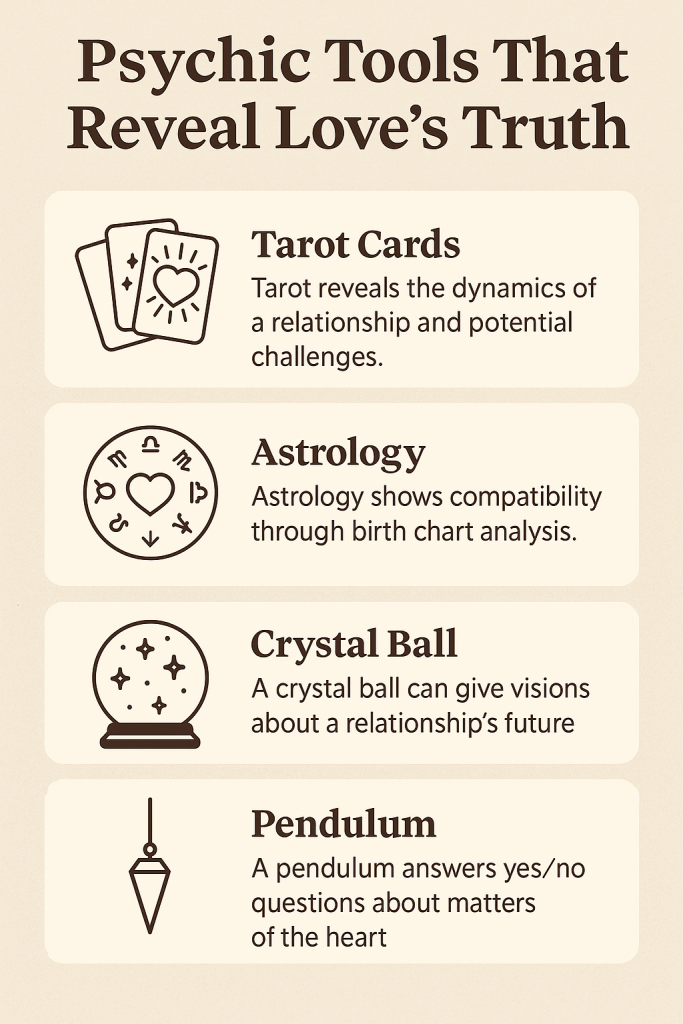
Psychics use different tools to translate the language of love energy. Each acts as a decoder for the emotions, karmic ties, and soul lessons hidden beneath surface attraction.
Tarot: The Emotional Compass
Tarot cards reveal the emotional weather of relationships.
The Lovers card isn’t just about romance—it symbolizes choice, reminding you that love thrives only when freely chosen.
The Two of Cups shows mutual resonance; both souls pouring equally.
The Tower doesn’t mean disaster—it signals transformation, the crumbling of illusions before real love can emerge.
A PsychicOz reader once described how a client pulled The Tower during a breakup. Instead of predicting doom, it represented liberation. Weeks later, the client met someone whose energy matched the very qualities she’d learned to embody—self-trust and openness. The Tower hadn’t destroyed love; it cleared space for the right one.
Numerology: The Mathematics of Emotion
Numbers carry vibrational meanings, and when two people’s life paths combine, their energy forms a unique equation.
A 2 and 6 pairing vibrates with emotional empathy and family harmony.
A 1 and 7 pairing thrives on independence and intellectual bond.
A 3 and 9 pairing expresses artistic chemistry and humanitarian goals.
Psychics use numerology to explain why some couples communicate telepathically while others seem to live on different planets. The formula reveals not compatibility alone—but potential for growth.
Aura Reading: Seeing Love in Color
Every person emits an energetic field, or aura, that shifts with emotion. Psychics who perceive color vibrations often describe love in hues:
Pink – affection, new beginnings, tenderness
Emerald green – healing, forgiveness, stability
Lavender – spiritual connection, empathy
Gold – divine union, soulmate vibration
One clairvoyant described witnessing two clients’ auras merge during a love reading—the colors intertwined into rose-gold light. Months later, the couple announced their engagement.
Aura readings often reveal truths before the conscious mind catches up. They expose energetic compatibility—the hidden magnetism that words can’t explain.
Dreams and Intuition
Many psychic insights about love arrive in dreams. A sudden vision of an unfamiliar person, recurring symbols (like water, mirrors, or keys), or repeated dream meetings can all indicate a soul preparing for connection.
One PsychicOz advisor shared that clients dreaming of missing trains or unopened doors were often subconsciously avoiding opportunities for love. Once they acknowledged fear, new relationships appeared within weeks. The dream world, in psychic understanding, acts as the rehearsal stage for emotional evolution.
Healing After Love: Closing Karmic Loops
When love ends, it rarely disappears—it transforms. The emotional pain that lingers after a breakup is often energetic residue, like static after a powerful transmission. Psychics call this cord energy—invisible threads that keep two souls energetically connected.
The Art of Cord Cutting
Cord cutting is a ritual of release. It doesn’t erase memory; it restores sovereignty. A psychic healer might guide you to visualize golden light around your heart, gently dissolving any cords that no longer serve your growth. Afterward, people often feel lighter, calmer, and suddenly less obsessed with the past.
One woman described how she couldn’t stop thinking about her ex for two years. After a guided cord-cutting meditation, she dreamt of him smiling and walking away down a sunlit path. She woke up feeling peace for the first time since the breakup.
The Cleansing Power of Ritual
Healing love wounds requires both intention and repetition. Psychics often recommend:
Salt baths to purify emotional residue.
Journaling under the waning moon to release attachment.
Crystals like rose quartz or rhodonite to reopen the heart chakra.
Affirmations like “I release you with gratitude. I reclaim my joy.”
Even science recognizes the value of ritual. Studies show that intentional acts of closure signal the brain that a cycle has ended, allowing emotional regulation to return. What psychics interpret as energy cleansing, neuroscience describes as neural rewiring. The bridge between mysticism and psychology is thinner than most realize.
The Phoenix Phase
After healing, love energy doesn’t fade—it rises higher. Psychics call this the Phoenix Phase, when you rediscover joy without needing validation. It’s when you realize that loving again isn’t risky—it’s courageous.
One PsychicOz client, after months of grief, began journaling gratitude for every lesson her ex taught her. Within weeks, she noticed strangers smiling more, invitations arriving, synchronicities aligning. She wasn’t “manifesting love” in the cliché sense—she was becoming love.
What Love Really Means to the Soul
To the soul, love isn’t possession—it’s participation. It’s the joy of recognizing another fragment of divinity within yourself. It’s not “mine” or “yours.” It’s “ours,” because every act of love expands the collective vibration of humanity.
A psychic once described it this way: “Love is not what you get from others; it’s what you allow the universe to express through you.” When you operate from that awareness, loneliness disappears. You realize love is not a destination but your default state.
As you grow spiritually, your definition of love evolves—from craving to contentment, from need to nourishment. Eventually, you stop asking “Who will love me?” and start asking “How can I embody love today?”
That is the heart of psychic understanding: love as an ever-expanding energy field that begins and ends within your own soul.
How a Psychic Can Help You Define Love for Yourself
Psychics help people uncover the energetic truth behind their romantic patterns. By reading your aura, interpreting your birth chart, or analyzing your numerology, they reveal what kind of love your soul came here to learn.
A PsychicOz advisor might show you which chakra governs your relationships—perhaps your heart energy is blocked by past pain, or your root energy craves stability more than passion. Once you understand your energetic blueprint, love becomes less about guessing and more about alignment.
Psychic readings don’t predict who you’ll marry—they illuminate who you’re becoming. Because the moment you align with self-love, the right relationship arrives effortlessly.
FAQs:
1) What do psychics mean by “love is an energy”?
Psychics view love as a measurable vibration in your aura and chakras, not just a feeling. When two people resonate, their fields harmonize and strengthen.
2) How is love different from lust or attachment?
Love expands and calms your system; lust is fast and electric; attachment feels heavy and anxious. Intuition reads these as distinct energetic signatures.
3) Can science and psychic insight both explain love?
Yes. Chemistry explains the body’s response (dopamine, oxytocin); psychic work interprets the energetic cause beneath those reactions.
4) What is a soul contract in relationships?
A soul contract is a pre-birth agreement to meet for growth. Some contracts last a lifetime; others end once a lesson completes.
5) How do I know if I’m in a karmic relationship?
Look for intense attraction, repeated conflicts around the same theme, fast growth, and a deep sense of “unfinished business.”
6) What are love frequencies?
They’re energetic “channels” like empathic, telepathic, creative, healing, transformational, or universal. Couples thrive when they share or respect each other’s dominant frequency.
7) Do the five love languages still matter?
Yes, but they’re surface expressions. Frequencies explain why certain behaviors nourish you at a deeper energetic level.
8) Can online connections be spiritually real?
Yes. Messages and images carry vibration. A psychic can help you distinguish projection from authentic resonance.
9) How can I tell if it’s true love?
True love feels peaceful, spacious, and honest. You remain yourself, communication is clear, and growth is mutual.
10) What role does intuition play in love?
Intuition is your inner compass. When logic and vibes conflict, follow the quiet, steady sense of peace.
11) Can a psychic predict my soulmate?
Ethical psychics don’t guarantee names or dates; they read your current timeline, patterns, and alignment to help you meet love sooner.
12) What tarot cards matter most in love readings?
The Lovers (alignment/choice), Two of Cups (mutuality), The Tower (transformation), The Star (healing/hope), and The World (completion/evolution).
13) How does numerology describe compatibility?
Life path blends (e.g., 2+6 for harmony, 1+7 for independence/intellect) reveal your relational strengths and growth edges.
14) What do aura colors say about love?
Pink signals new affection, green signals healing/stability, lavender spiritual empathy, and gold divine union.
15) What is divine timing?
It’s the alignment of personal readiness and external opportunity. When lessons integrate, opportunities appear.
16) Why does heartbreak hurt so much spiritually?
Energetic cords remain after separation. Grief is your system recalibrating to sovereignty without the other person’s field.
17) What is cord cutting?
A gentle ritual to release non-serving energetic ties. It keeps lessons and love, but returns your energy to you.
18) How can I heal after a breakup psychically?
Use salt baths, forgiveness rituals, journaling under a waning moon, and heart-centered breathwork; seek a compassionate reading for clarity.
19) Can dreams guide my love life?
Yes. Recurrent symbols, doors, keys, trains, water, or recurring “mystery people” can signal readiness, avoidance, or approaching connections.
20) How do I stop repeating unhealthy patterns?
Name the pattern, do inner child/parts work, set boundaries, and get a reading to identify the root lesson and energetic triggers.
21) Are twin flames real?
Some experience them as catalytic partners who accelerate growth. Intensity alone isn’t proof; consistent evolution and mutual respect are.
22) What’s the difference between soulmates and twin flames?
Soulmates feel harmonious and supportive; twin flames are transformative and often turbulent until both stabilize.
23) Can long-distance love succeed energetically?
Yes, if both invest in intentional presence—scheduled connection rituals, shared meditations, and honest communication.
24) How do cultural beliefs shape love energy?
Beliefs act like filters on your aura. If love equals sacrifice in your story, you’ll unconsciously manifest that pattern until you rewrite it.
25) How do boundaries fit into spiritual love?
Boundaries protect life force. They’re not walls; they’re doors with conscious hinges that keep love honest and energy balanced.
26) Can astrology time better dating windows?
Transits to Venus, the Moon, and the Descendant can highlight seasons of attraction, healing, or commitment.
27) What’s the fastest way to raise my “love frequency”?
Consistent self-respect: rest, authentic expression, gratitude, aligned yes/no, and daily heart-breathing practices.
28) How can a psychic reading help a good relationship?
It can reveal blind spots, timing issues, and the best rituals to deepen trust, intimacy, and purpose.
29) How do I define love for myself?
Write your personal love creed: how love feels in your body, how it treats you, and what behaviors prove it over time.
30) When should I consult a psychic about love?
When you’re looping on questions, facing a crossroads, or sensing change. A reading offers clarity, calm, and next aligned steps.



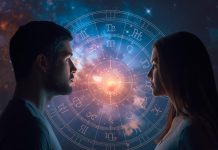

So, let me get this straight—if I start loving myself more, I’ll attract the love of my life? Maybe I should write a love letter to myself right now. Pardon my sarcasm, but the advice seems a bit too simplistic!
Ah, the timeless quest to define love! It’s almost poetic that after millennia, we’re still as clueless as we were at the start. Makes you wonder if we ever will truly understand it.
This article reiterates what many of us already know about love but fails to provide any groundbreaking insights. It feels somewhat redundant.
I respectfully disagree. Sometimes it’s important to revisit fundamental concepts to gain deeper understanding. The article is a good reminder.
I find it amusing how people dismiss the basics as ‘redundant.’ The irony is, we’ve overcomplicated love when it’s the simplest of truths.
The article provides an insightful examination of how our perceptions of love evolve throughout different stages of life. It is true that early experiences significantly shape our understanding and expressions of love.
I appreciate the emphasis on self-love as a foundational element for healthy relationships. It is an often-overlooked aspect that can truly transform how we interact with others.
While the piece underscores the importance of introspection in understanding love, it could benefit from discussing the role of communication in maintaining mature relationships.
This article is thought-provoking, especially when discussing how our early experiences shape our current relationships. It would be interesting to explore how cultural differences influence these early experiences.
As someone who has extensively studied human behavior and psychology, I must commend the author for succinctly summarizing the complexities of love. Understanding our formative experiences does indeed impact our adult relationships.
The article’s suggestion to reflect on past relationships to inform current ones is valuable. Writing down attributes of admired relationships can indeed provide clarity on what we seek in love.
I agree with your point, Delia. Reflection is a powerful tool, and it can really help in recalibrating our approach to love and relationships.
What an eloquently written piece! It’s fascinating how the human experience with love evolves over time and how our early experiences shape our present relationships. Truly thought-provoking.
Comments are closed.